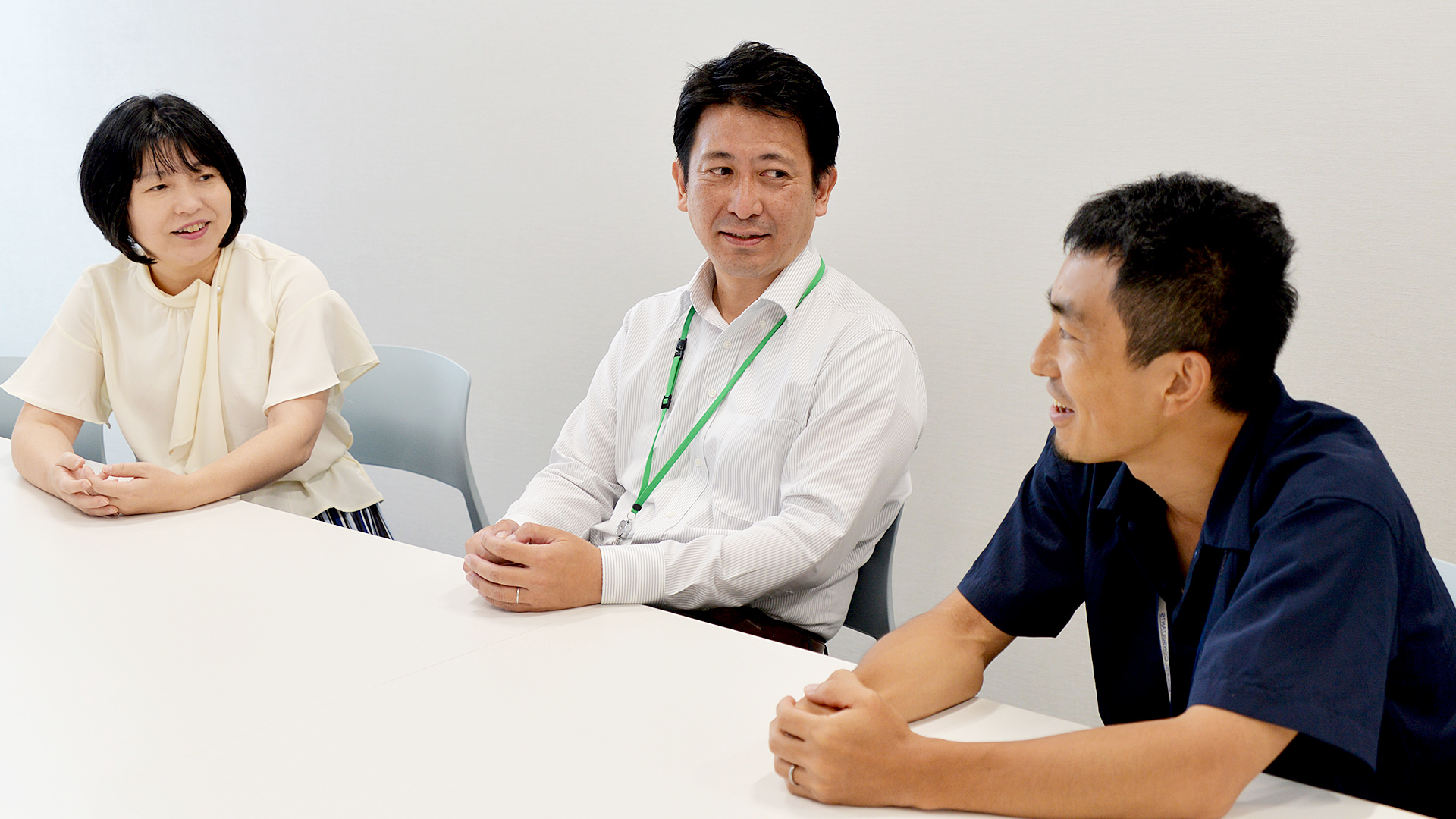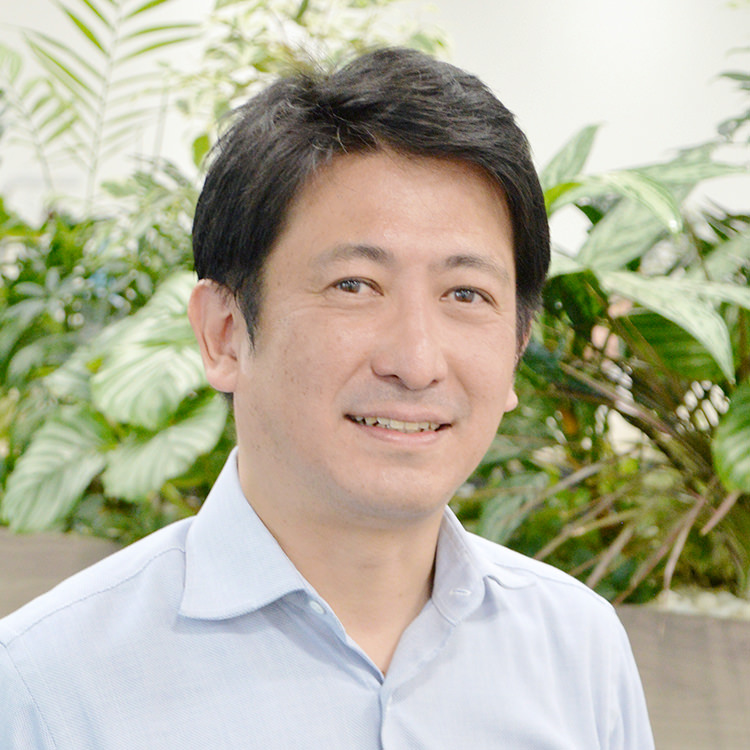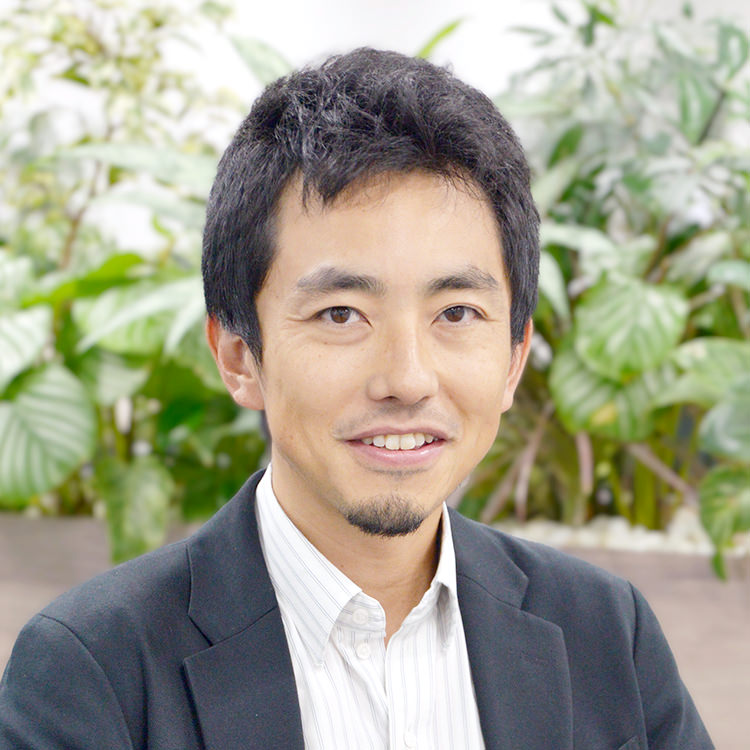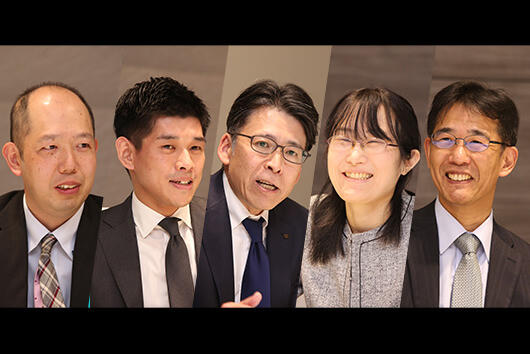Pacific Power was established in 2015 as a wholly owned subsidiary of PACIFIC CONSULTANTS to promote Regional Power Producers and Suppliers (PPS) business. The company aims to explore new regional management styles with local governments through the retail and wholesale of electricity, heat supply and heat utilization, and related businesses, and to link this to regional development. We have already established 17 companies of Municipal Power Producers and Suppliers (PPS) and are currently developing various activities to realize a regional version of GX (Green Transformation) that realizes decarbonization along with economic growth, with the Municipal Power Producers and Suppliers (PPS) as the core of our activities. To learn more about Pacific Power's history and future goals, we interviewed Michiko GOUZU, a member who is the President since the beginning of establishment, Shunsuke MUTA, General Manager of Solutions Marketing & Sales Dept., and Kenji MATSUDA, General Manager of Business Planning Dept.
INDEX
- What the establishment of Pacific Power aimed to
- Establishment of 17 companies of Municipal Power Producers and Suppliers (PPS) to promote retail electricity business
- Developing business in three fields of energy conservation, energy production, and energy management
- Energy services through the development of microgrids
- Promoting original business in parallel with Municipal Power Producers and Suppliers (PPS)
- Expectations are rising for existence of regional energy companies
- Our future goals: To become an energy company with consulting capabilities
What the establishment of Pacific Power aimed to
Ahead of the full liberalization of the electricity retail market in April 2016, PACIFIC CONSULTANTS established a subsidiary, Pacific Power Co., Ltd., and entered the retail electricity business.
Traditionally, PACIFIC CONSULTANTS has believed that in order to maintain regional infrastructure services and promote regional development under changing circumstances such as population decline, aging, rising social costs, and declining tax revenues, it is necessary to create new mechanisms and players through collaboration between government, private companies, and residents. In fact, in the field of infrastructural civil engineering, we are working on comprehensive management of roads and sewerage systems, and have embarked on new developments in regional management together with local governments. The establishment of Pacific Power aimed at expanding these efforts into the energy field.

Specifically, Pacific Power established the Municipal Power Producers and Suppliers (PPS) through a joint investment with the local government, procures electricity mainly generated within the region, and supplies it to various public facilities operated by the local government at the lowest possible price. This initiative aims to reduce electricity bills and contribute to maintaining the soundness of local government finances, while also serving as a medium for local production and consumption of energy. Furthermore, by keeping electricity fees that previously flowed out of the region within the region and using them for reinvestment, Pacific Power aims to secure business profits, promote energy conservation and energy production in the region, and ultimately promote the regional economy.
Establishment of 17 companies of Municipal Power Producers and Suppliers (PPS) to promote retail electricity business
In response to the proposal to establishment of Municipal Power Producers and Suppliers (PPS), some local governments initially questioned, "Can a local government do that?", "If it's all so good, why hasn't anyone done it yet?". We explained, "This is possible only because of the recent legal reforms that have led to retail liberalization, but it has not yet become widely known. Our efforts will start from now", and soon four local governments established the Municipal Power Producers and Suppliers (PPS). This triggered an increase in the number of local governments that established the 17 companies of Municipal Power Producers and Suppliers (PPS) up to date, and Pacific Power has actively participated in management by dispatching Director/Board Member to all of the companies. There are currently 103 companies of Municipal Power Producers and Suppliers (PPS) nationwide (as of the end of April 2024, according to survey of the Ministry of Economy, Trade and Industry), but no private company is involved in establishment and management of 17 companies, making Pacific Power a leader in the field of Municipal Power Producers and Suppliers (PPS).
There are two reasons why we are a big leader in the Municipal Power Producers and Suppliers (PPS) business. The first is that we have the know-how to reliably generate profits.
In order for the Regional Power Producers and Suppliers (PPS) to ensure a stable supply of electricity, they are required to adjust supply and demand.
Since electricity cannot be stored, supply and demand must always be "simultaneous and equal." If the balance is lost, the frequency will be disrupted and electricity will not be supplied normally, causing safety devices to activate and stopping power generation. The "blackout" that occurred across Hokkaido in September 2018 was caused by this breakdown in the balance of power supply and demand.
For this reason, the former general electric utilities (such as the Tokyo Electric Power Company Group, etc.) adjust the amount of electricity generated by various power plants in real time to match it with demand. The Municipal Power Producers and Suppliers (PPS), although on a smaller scale, also have to make these adjustments. Dividing a day into 48 blocks of 30-minute, they calculate how much electricity to procure from where based on demand, using complex software that also takes into account the fact that the amount of electricity generated by solar power generation, in particular, changes from moment to moment depending on the weather. Even if the forecast is inaccurate and there is a power surplus or shortage, the system can automatically absorb or compensate, but if they have to make an emergency unexpected procurement from the electricity wholesale market, the purchase price will be very high, worsening the profitability of the business.
Pacific Power's employees with expertise in this field worked with a system company to develop our original system, which allowed them to keep the initial investment low at the start of the business, while at the same time ensuring a profit of a few percent to 15% even after the start of operations while keeping retail prices low. The Municipal Power Producers and Suppliers (PPS) companies that Pacific Power has been involved in establishment, have generally begun supplying electricity within one year after the establishment, and have achieved a single-year profit within one year of starting supply, resulting in a good business track record.
Another reason why Pacific Power has been so successful in the Local Governmental Power Producers and Suppliers (PPS) sector is its ability to expand into a variety of energy-saving and energy production businesses beyond electricity retail, and the great contribution it has made to regional development through those processes.
Originally, PACIFIC CONSULTANTS' goal through establishment of Pacific Power was not to increase profits from the retail electricity business. The purpose was to explore new styles of regional management in the energy field together with local governments and link it to regional development. For this reason, Pacific Power not only aims to reduce the utility costs of local governments through the retail electricity business by establishment of the Municipal Power Producers and Suppliers (PPS), but also actively reinvests the profits gained by Municipal Power Producers and Suppliers (PPS) into businesses such as energy-saving, energy production, and advanced energy management, etc. While many Municipal Power Producers and Suppliers (PPS) companies only develop retail electricity business with know-how provided by private companies outside the region, the Municipal Power Producers and Suppliers (PPS) established with Pacific Power as a joint investor has gone a step further and developed various energy businesses, leading to the revitalization of the local economy and regional development. This pursuit was possible only because Pacific Power is based on PACIFIC CONSULTANTS which has been developing consulting business in the infrastructure field for local governments for many long years.
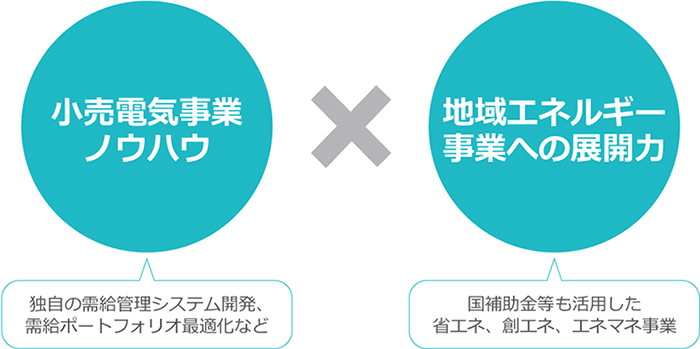
Developing business in three fields of energy conservation, energy production, and energy management
Specifically, the Municipal Power Producers and Suppliers (PPS) companies are expanding their business as three pillars: "energy-saving business," "renewable energy introduction promotion (energy production) business," and "energy management business," with the low-cost electricity supply business
One example is the energy-saving ESCO business.
This is a business that promotes the introduction of energy-saving equipment by entering into a contract with the ESCO business operator to provide all services to electricity consumers regarding the introduction of energy-saving equipment, including diagnosis of the effects, design and construction, operation and maintenance, and fundraising, and to guarantee the energy-saving effects that will be obtained as a result. Electricity users will pay to the ESCO business operator the amount of the reduction in utility bills that results from the introduction of the equipment as compensation for the service provided.
In other words, by paying the same utility bills as before, users can switch to energy-saving equipment with no new capital investment, and once the service fee is all paid, the entire amount of the reduced utility bills becomes the user's income. In fact, Konan Ultra Power (Konan City, Shiga Prefecture) has used this method to switch to LED lighting in their junior high school gymnasium.
Additionally, one of the energy production projects (projects promoting the introduction of renewable energy) is the PPA (Power Purchase Agreement) model.
PPA business operators install solar power generation systems mainly on the rooftops of facilities such as companies or on unused land. The PPA business operator covers all installation costs, and the facility owner, in exchange for providing the space, receives installation costs and maintenance and inspection services free of charge. The electricity generated can be received after a cost of contract is signed between the PPA business operator and the facility owner, and the reduction in CO2 emissions can also be counted as an achievement for the electricity consumer. The major attractive point is that it allows them for the introduction of renewable energy without the need of capital investment or maintenance costs.
Furthermore, if solar panels are installed in as many locations as possible, it is possible that the electricity generated during the day will exceed demand. In that case, one method is to introduce a storage battery to store the surplus electricity and discharge it at night for using. If an EMS (Energy Management System) is incorporated, the remaining battery charge can be monitored and automatically controlled to be the most efficient, maximizing the effects of energy-saving and energy production. This is what we are developing as our energy management business.
Energy services through the development of microgrids
Additionally, the Municipal Power Producers and Suppliers (PPS) "Chiba Mutsuzawa Energy", has introduced microgrid facilities as a new business development alongside its retail electricity business, and is supplying electricity and heat to roadside station and 33 houses in the Smart Wellness Town.
Originally, Chiba Mutsuzawa Energy was operating a retail electricity business using solar power generated within the town and electricity purchased from Tokyo Electric Power Company and the electricity wholesale market. Later, as the development plans for a Smart Wellness Town and roadside station has progressed in the area and PACIFIC CONSULTANTS made a development proposal, Pacific Power also decided to make its own proposal for the energy business. Since it was possible to generate electricity using locally produced natural gas, they carried out gas cogeneration, and supplied electricity generated by solar power and gas cogeneration on the roof of roadside station to the houses in the Smart Wellness Town and roadside station through a microgrid (a privately operated line). They also built a system that uses the exhaust heat from natural gas power generation to heat groundwater and supply hot water to the hot spring facilities at roadside station. Although this is a separate business from the retail electricity business, it has attracted a lot of attention as an energy production business in the area.
Shortly after Chiba Mutsuzawa Energy's microgrid energy service business began operation in September 2019, the Typhoon Faxai caused a widespread blackout across Chiba Prefecture. While the surrounding area lost power, but only this area was able to continue to be provided power through the microgrid. As a result, roadside station's hot spring facilities were opened to nearby residents, providing showers, toilets, and mobile phone charging for over 800 people, which brought the business into the spotlight.
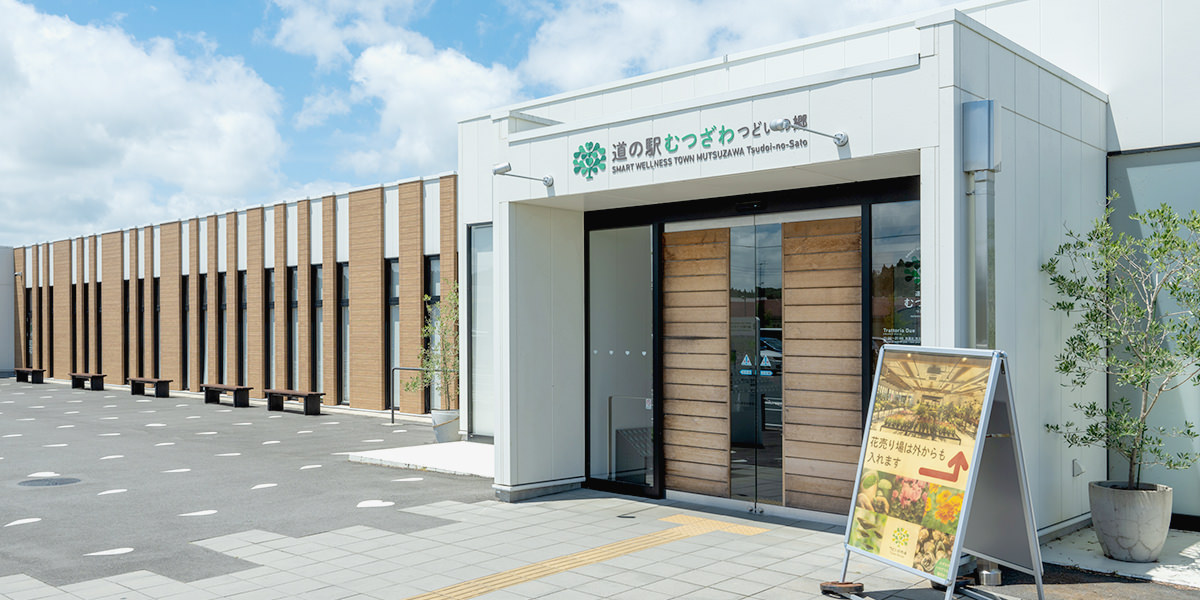
Promoting original business in parallel with Municipal Power Producers and Suppliers (PPS)
In addition, Pacific Power is independently working on VPP and DR businesses in parallel with various initiatives through Municipal Power Producers and Suppliers (PPS). VPP is an abbreviation for "Virtual Power Plant," and DR stands for "Demand Response, or adjustment based on demand."
In order to achieve the "same amount at the same time" of electricity in the conventional power supply by power plants, the power plant side finely adjusts the supply amount according to the increase or decrease in demand. However, as the number of renewable energy-based power sources such as solar and wind power increases, the instability of electricity derived from renewable energy has become a major problem for supply-demand adjustment. It is easy to raise or lower the output of thermal power generation, but electricity from renewable energy cannot be adjusted. This is also a hindrance to the spread of renewable energy.
In order to solve this problem, the development of a system for adjusting the supply and demand of electricity on the consumer side rather than the power generation side is being promoted, and this is VPP and DR.
Although each energy resource owned by a factory or a house is small, this is an attempt to use advanced energy management technology using IoT to bundle these resources and control them remotely to adjust the balance of supply and demand of electricity. This system functions as if it were a single power plant, so it has the meaning of a virtual power plant (VPP), and is called demand response (DR) because the supply and demand adjustment that was previously performed by the supply side (the power plant side) is performed by the demand side. The owner of the energy resource on the demand side (or a third party) cooperates in adjusting supply and demand by controlling the energy resource (when there is an excess of power generation, the equipment is operated to consume it or store it in a storage battery, and when there is a shortage, the output of the equipment is reduced to reduce demand). Since compensation is paid for this, VPP/DR is viable as a business. Pacific Power works with PACIFIC CONSULTANTS which has a strong sales network in the public infrastructure field, to support water supply and sewerage facilities and waste-to-energy facilities nationwide in participating in VPP/DR projects, and has a track record of being among the best in Japan. Since the VPP/DR business is also significant in promoting the spread of renewable energy, Pacific Power is also actively involved in it.
Expectations are rising for existence of regional energy companies
Japan is currently implementing various measures to meet its international commitments of reducing greenhouse gas by 46% by 2030 compared to 2013 levels and achieving carbon neutrality by 2050. Among these, local initiatives are being emphasized, and the Sixth Basic Environment Plan, approved by the Cabinet in May 2024, clearly states that regional energy companies are important players in this effort, describing their role as follows: "Regional energy companies, working in partnership with local government organizations, are expected to utilize regional resources such as renewable energy to become key players in the creation of regional circulation-based symbiosis zones that contribute to revitalizing the regional economy and resolving regional issues, as well as to support the decarbonization of regional small and medium-sized enterprises and contribute to strengthening the competitiveness of regional industries."
In the previous Fifth Basic Environment Plan, they were described as "Business entities such as Regional Power Producers and Suppliers (PPS) that utilize regional renewable energy and promote low carbonization," but five years later, the term has changed dramatically to "Regional energy companies as key players in regional circulation-based symbiosis zones that contribute to revitalizing the regional economy and resolving regional issues." They are now expected to play a role in creating sustainable regions that goes beyond supplying electricity.
Among them, Pacific Power is currently aiming to further expand the number of Municipal Power Producers and Suppliers (PPS), with the goal of expanding the number from the current 17 to 20 companies.
At the same time, we would like to strongly support the decarbonization efforts being undertaken in local areas by Municipal Power Producers and Suppliers (PPS).

The establishment of Municipal Power Producers and Suppliers (PPS) is one example of the decarbonization efforts being made in the region, but it is not easy to actually achieve results. In fact, the Ministry of the Environment is promoting a support project for designating "Decarbonization Pioneer Regions" that will provide subsidies of 5 billion yen over a five-year period, and many local governments and Municipal Power Producers and Suppliers (PPS) have applied and been selected, but actually moving forward with the introduction of renewable energy is not easy. There have been delays across the board in implementing plans, and some local governments have declined to be designated as pioneer regions despite having received subsidies.
Pacific Power is supporting the three local governments and Municipal Power Producers and Suppliers (PPS) that it is involved in, as their proposals have been adopted. The establishment of a special purpose company to support the introduction of facilities is one part of this effort.
As part of its efforts to become a decarbonization pioneer region, the region will utilize subsidies of up to 5 billion yen to introduce numerous pieces of equipment to achieve decarbonization, but the introduction of these facilities will require a lot of specialized work, including surveys, outline designs, the preparation of income and expenditure plans, fundraising, arranging for construction companies, construction supervision, and financial management after operations begin. These tasks cannot be fully borne by local governments or Municipal Power Producers and Suppliers (PPS), and the national subsidy is only applicable to the introduction of the facilities themselves.
Pacific Power has therefore established a special purpose company, the "Decarbonization Promotion Organization", together with a private investment company (press release dated April 11, 2024), to separate various implementation tasks and financial management from local governments and Municipal Power Producers and Suppliers (PPS) and consolidate them in the special purpose company, creating an environment in which the company can focus on its operations as a business entity.
Furthermore, we are also focusing on the development of renewable energy using regional resources as a new power source. Pacific Power, which has a group of engineers from various fields as its background from PACIFIC CONSULTANTS, has the ability to propose new technologies, such as methane gas power generation at sewage treatment plants, and we would like to proceed with various renewable energy business proposals tailored to the actual conditions of the region.
Our future goals: To become an energy company with consulting capabilities
Pacific Power wants to create value in the region, to solve region's issues, to revitalize the regional economy, and contribute to the development of a sustainable region through these efforts. This is the realization of GX (Green Transformation) in the region, which enables decarbonization and sustainable economic growth at the same time.
On the one hand, by promoting energy-saving and on the other hand, consuming electricity generated using regional energy resources within the region within the region, regional production and consumption of energy can be realized, which will lead to the revitalization of the region through the development of industry and the expansion of employment. GX is essential for creating a sustainable region.
Business opportunities exist only where there is a change. The sense of crisis over climate change is becoming more real, and the development of measures to achieve carbon neutrality is now a time of urgency. Everyone feels the need for action more than ever before. Jumping into areas where change is occurring leads to growth. Pacific Power is an energy business company with consulting capabilities, and by fully utilizing these characteristics, we will contribute to the development of sustainable regional communities.



